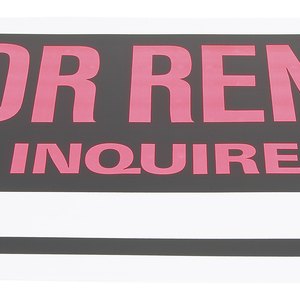
Bad tenants sometimes cause problems long after they leave, usually through unpaid rent and damage to the property. Before he resolves those issues, however, a landlord must first evict his bad tenants so he can assess damages and re-rent the dwelling. Eviction proceedings seem long and arduous, but there are ways to speed up the process.
Lease Violation
When bad tenants violate terms of their lease, the landlord can post a notice informing them that their right to tenancy has been revoked. This is called an unconditional quit or vacate notice. It gives the tenant a specific period of time, three days, for example, to surrender possession of the dwelling. The notice will specify that,\ if the tenants do not vacate the landlord will file eviction proceedings through the local court system. In some cases, bad tenants will vacate without the landlord having to take any extra steps.
Agreement
Even if no violation has occurred, the landlord might want to evict bad tenants to avoid problems that have arisen over the course of their tenancy. For example, perhaps the landlord has received complaints from neighbors about the noise level. In this case, it is sometimes fastest to simply talk to the tenants. He can suggest that the arrangement has not worked out well for either party, then suggest that they find somewhere else to live. If both parties agree to break the lease, there are no time-consuming legal battles.
Evidence
If you are the landlord, it is easier and faster to evict bad tenants when you have collected strong evidence that supports your lawsuit. If tenants damage your property, for example, photos of the destruction will help a court to reach a decision faster. You should also have a copy of your lease agreement as well as any addenda. Since you are the plaintif in an eviction lawsuit, you bear the burden of proof, so you must be able to prove your case by a preponderance of the evidence.
Bond for Immediate Possession
Some states, such as Texas, allow landlords to obtain a bond for immediate possession, which requires a cash bond or surety that shortens the eviction proceeding by a couple weeks. This will not allow you to evict bad tenants faster if they choose to post a counter-bond or if they exert their right to a trial. Furthermore, if your lawsuit is not successful, you could lose the value of the bond.
Damages
Some eviction lawsuits take longer to resolve because the landlord is seeking monetary damages as well as eviction. For example, a landlord might sue bad tenants to get them off the property and to recover unpaid rent as well. If you are more concerned with asserting possession of the dwelling than recouping your losses, you can choose to drop that portion of your lawsuit and proceed with only the eviction. There is no guarantee this will speed up the process, however.
References
- NOLO
- NOLO. "How Evictions Work: What Renters Need to Know." Accessed Aug. 13, 2020.
- MassLegalHelp. "When Can Landlord Evict." Accessed Aug. 13, 2020.
- VA Legal Aid. "Evictions (including Lockouts and Utility Shutoffs)." Accessed Aug. 13, 2020.
- Kreis-Enderle. "Evictions 101: Possession Judgments Vs. Money Judgments." Accessed Aug. 13, 2020.
- Pew. "How Free Legal Help Can Prevent Evictions." Accessed Aug. 13, 2020.
- Eviction Lab. "What Is the Eviction Process Like?" Accessed Aug. 13, 2020.
- Legal Aid of North Carolina. "Eviction Guide." Accessed Aug. 13, 2020.
- NOLO. "Tenant Defenses to Evictions in Virginia." Accessed Aug. 13, 2020.
- Harvard Law Review. "The Limits of Unbundled Legal Assistance." Accessed Aug. 13, 2020.
- Eviction Lab. Email. Accessed Aug. 13, 2020.
- Harvard. "Documenting the Long-Run Decline in Low-Cost Rental Units in the US by State." Accessed Aug. 13, 2020.
- Brookings. "Is the rent “too damn high”? Or are incomes too low?" Accessed Aug. 13, 2020.
- Govtrack.us. "H.R. 748: Coronavirus Aid, Relief, and Economic Security Act." Accessed August 14, 2020.
- CBPP. "Extend CARES Act Eviction Moratorium, Combine With Rental Assistance to Promote Housing Stability." Accessed Aug. 13, 2020
- CNBC. "Trump’s order does little to stop impending eviction crisis, experts say." Accessed Aug. 13, 2020.
- Urban Institute. "The CARES Act Eviction Moratorium Covers All Federally Financed Rentals—That’s One in Four US Rental Units." Accessed Aug. 13, 2020.
- Federal Register. "Temporary Halt in Residential Evictions To Prevent the Further Spread of COVID-19." Accessed Aug. 9, 2020.
Writer Bio
Laura College is a former riding instructor, horse trainer and veterinary assistant. She has worked as a writer since 2004, producing articles and sales copy for corporations and nonprofits. College has also published articles in numerous publications, including "On the Bit," "Practical Horseman" and "American Quarter Horse Journal."

